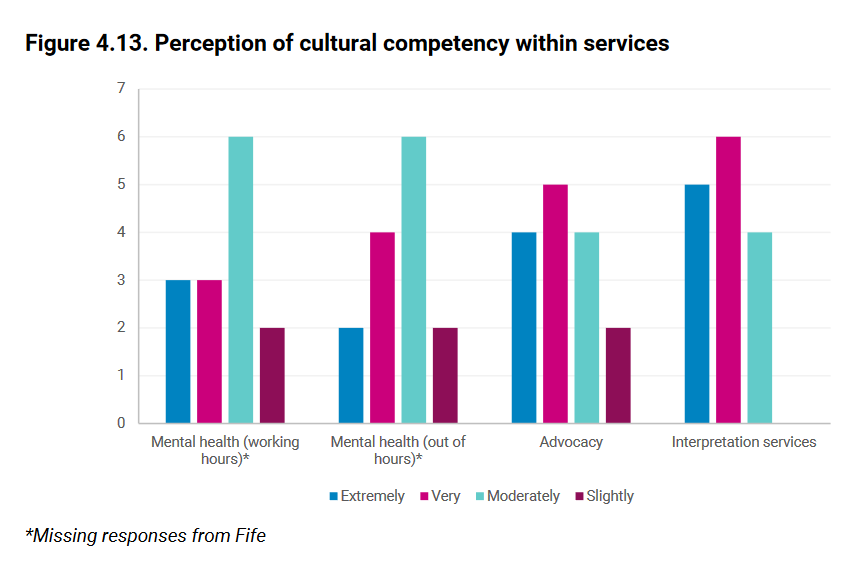A comprehensive new report examining racial inequality across mental health services in Scotland is published today by the Mental Welfare Commission. The report called ‘Racial inequality and mental health services in Scotland: A call for action‘ looks at the following themes; ethnicity and detention under the Mental Health Act, the views of people with lived experience, the experience and training of Scotland’s mental health services workforce, racial equality in that workforce, and recording and reporting of ethnicity across mental health services, including in the Commission’s own work.
Key findings
- The report, found differences in the ways the Mental Health Act is applied when people from ethnic minorities are detained for mental health care and treatment compared to white Scottish people, particularly between black women and white Scottish women.
- Half of the 32 people with lived experience of mental health difficulties who provided views were refugees. They wanted greater awareness in primary care of the impact of the asylum system on mental health. People described the impact of micro-aggressions on their mental health.
- The report found a real need and desire for training for staff on ethnicity and diversity, with over 70% of staff surveyed saying there were gaps in training available in Scotland’s NHS.
- The report found a need for better recording and reporting of information on ethnicity, including by the Mental Welfare Commission itself.
Independent advocacy services
The authors of the report set out to explore whether our mental health services are culturally competent and what people with lived experience of mental illness and their carers and family from diverse ethnic groups feel about access to services. This included, as part of the terms of references, access to advocacy services.
Equality and Diversity Leads across health boards identified advocacy services as being more culturally competant than general mental health services, although less so than interpretation services. It is worth emphasising that this perception is from health board staff, not people using services.

People with lived experience and their families and carers spoke about their difficulties in accessing treatment and their mixed experience on the cultural sensitivity of mental health services. People with lived experience also described micro-aggressions and racism that impacted on their mental health and their sense of belonging in Scotland. They described how third sector community-based organisations build vital bridges between people and services, and engender trust.
Recommendations
This report states that the principles of non-discrimination and respect for diversity that underpin the Mental Health Act are not yet fully realised. 30 recommendations are made for the public sector, including health boards and Scottish Government, as well as to the Independent Review of Scottish Mental Health Law.
Although no recommndations are applicable directly to advocacy services, it is important to note the broader themes that are applicable across third sector services, for example, around consistent and robust data collection on ethnicity, the importance of a ethnically diverse workforce and recognising the significant role of minority ethnic organisations for people of colour using mental health services.
Visit the MWC website to read the full report and recommendations.

